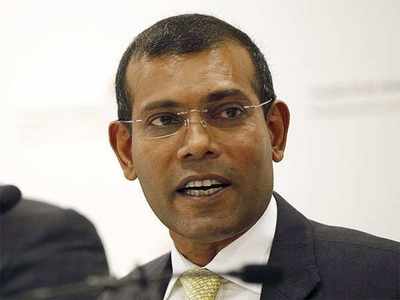[ad_1]

File photo: Mohamed Nasheed
MALE: The Maldives president said on Friday an explosion that wounded former leader Mohamed Nasheed was an attack on the country’s democracy and economy, and announced that Australian police would assist the investigation.
Nasheed, 53, was wounded in the blast Thursday night outside his home and was being treated in a hospital in the capital, Male, police said. Home minister Imran Abdulla told a local television that his injuries were not life-threatening.
He is the current Parliament speaker and was the first democratically elected president of the Indian Ocean archipelago, from 2008 to 2012.
President Ibrahim Mohamed Solih said in a televised speech that Australian investigators will arrive on Saturday. Neither Solih nor police have given further details on the attack and no one has claimed responsibility.
Photos circulated on social media showed a ripped-up motorcycle at the scene.
Neighboring India’s external affairs minister S Jaishankar in a tweet described the blast as an attack on Nasheed.
“Wish him a speedy recovery. Know that he will never be intimidated,” Jaishankar said.
The Australian Federal Police said its members will engage with Maldives police and assess the assistance that can be provided to their investigation. It declined further comment.
Nasheed’s presidency ended a 30-year autocratic rule, but his own term was cut short when he resigned amid protests. He was defeated in the subsequent presidential election and became ineligible to enter the 2018 race because of time served in jail. His party colleague, Solih, won the vote.
Nasheed remained an influential figure and was elected Parliament speaker in 2019.
He has championed global efforts to fight climate change, particularly rising seas threatening the low-lying islands of his archipelago nation.
He has also been an outspoken critic of religious extremism in the predominantly Sunni Muslim nation, where preaching and practicing other faiths are banned by law.
The Maldives is known for its luxury resorts but has seen rare violent attacks. In 2007, a blast in a park in the capital wounded 12 foreign tourists.
Violence has been blamed on a rise in religious extremism. The Maldives has one of the highest per capita numbers of militants who fought in Syria and Iraq.
Arrests have been made from time time. Maldives authorities announced in January that a group of eight arrested last November were found to have been planning to attack a school and were in the process of building bombs in a boat at sea.
FacebookTwitterLinkedinEMail
[ad_2]
Source link